第10章 Chapter X.(1)
Whatever degree of small merit the act of benignity in favour of the midwife might justly claim, or in whom that claim truly rested,--at first sight seems not very material to this history;--certain however it was, that the gentlewoman, the parson's wife, did run away at that time with the whole of it: And yet, for my life, I cannot help thinking but that the parson himself, though he had not the good fortune to hit upon the design first,--yet, as he heartily concurred in it the moment it was laid before him, and as heartily parted with his money to carry it into execution, had a claim to some share of it,--if not to a full half of whatever honour was due to it.
The world at that time was pleased to determine the matter otherwise.
Lay down the book, and I will allow you half a day to give a probable guess at the grounds of this procedure.
Be it known then, that, for about five years before the date of the midwife's licence, of which you have had so circumstantial an account,--the parson we have to do with had made himself a country-talk by a breach of all decorum, which he had committed against himself, his station, and his office;--and that was in never appearing better, or otherwise mounted, than upon a lean, sorry, jackass of a horse, value about one pound fifteen shillings; who, to shorten all description of him, was full brother to Rosinante, as far as similitude congenial could make him; for he answered his description to a hair-breadth in every thing,--except that I do not remember 'tis any where said, that Rosinante was broken-winded; and that, moreover, Rosinante, as is the happiness of most Spanish horses, fat or lean,--was undoubtedly a horse at all points.
I know very well that the Hero's horse was a horse of chaste deportment, which may have given grounds for the contrary opinion: But it is as certain at the same time that Rosinante's continency (as may be demonstrated from the adventure of the Yanguesian carriers) proceeded from no bodily defect or cause whatsoever, but from the temperance and orderly current of his blood.--And let me tell you, Madam, there is a great deal of very good chastity in the world, in behalf of which you could not say more for your life.
Let that be as it may, as my purpose is to do exact justice to every creature brought upon the stage of this dramatic work,--I could not stifle this distinction in favour of Don Quixote's horse;--in all other points, the parson's horse, I say, was just such another, for he was as lean, and as lank, and as sorry a jade, as Humility herself could have bestrided.
In the estimation of here and there a man of weak judgment, it was greatly in the parson's power to have helped the figure of this horse of his,--for he was master of a very handsome demi-peaked saddle, quilted on the seat with green plush, garnished with a double row of silver-headed studs, and a noble pair of shining brass stirrups, with a housing altogether suitable, of grey superfine cloth, with an edging of black lace, terminating in a deep, black, silk fringe, poudre d'or,--all which he had purchased in the pride and prime of his life, together with a grand embossed bridle, ornamented at all points as it should be.--But not caring to banter his beast, he had hung all these up behind his study door: and, in lieu of them, had seriously befitted him with just such a bridle and such a saddle, as the figure and value of such a steed might well and truly deserve.
In the several sallies about his parish, and in the neighbouring visits to the gentry who lived around him,--you will easily comprehend, that the parson, so appointed, would both hear and see enough to keep his philosophy from rusting. To speak the truth, he never could enter a village, but he caught the attention of both old and young.--Labour stood still as he pass'd--the bucket hung suspended in the middle of the well,--the spinning-wheel forgot its round,--even chuck-farthing and shuffle-cap themselves stood gaping till he had got out of sight; and as his movement was not of the quickest, he had generally time enough upon his hands to make his observations,--to hear the groans of the serious,--and the laughter of the light-hearted; all which he bore with excellent tranquillity.--His character was,--he loved a jest in his heart--and as he saw himself in the true point of ridicule, he would say he could not be angry with others for seeing him in a light, in which he so strongly saw himself: So that to his friends, who knew his foible was not the love of money, and who therefore made the less scruple in bantering the extravagance of his humour,--instead of giving the true cause,--he chose rather to join in the laugh against himself; and as he never carried one single ounce of flesh upon his own bones, being altogether as spare a figure as his beast,--he would sometimes insist upon it, that the horse was as good as the rider deserved;--that they were, centaur-like,--both of a piece. At other times, and in other moods, when his spirits were above the temptation of false wit,--he would say, he found himself going off fast in a consumption; and, with great gravity, would pretend, he could not bear the sight of a fat horse, without a dejection of heart, and a sensible alteration in his pulse; and that he had made choice of the lean one he rode upon, not only to keep himself in countenance, but in spirits.